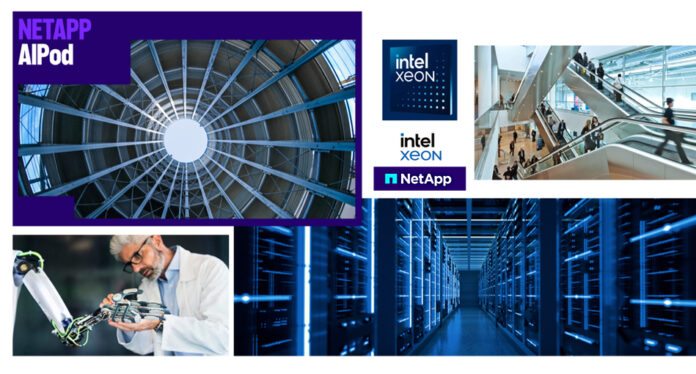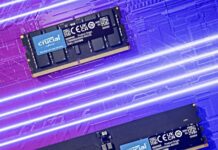NetApp has added a lower cost AIPod Mini to its AIPod line of ONTAP AI systems, which provide a compute and storage foundation for departmental and team-level enerative AI workload projects.
The AIPod line started with the AIPod with Nvidia, a certified Nvidia BasePOD system, using the GPU maker’s DGX H100 GPU server attached to NetApp’s AFF C-Series capacity flash systems. These then had faster A-Series flash arrays supported and there was a Lenovo AIPod version, with Nvidia OVX, built for GenAI fine-tuning, inferencing, retrieval-augmented generation (RAG), deploying customized chatbots, copilots, and other GenAI apps. ONTAP gained a directly integrated AI data pipeline, with automated vector embedding creation, last September. In March, NetApp’s AIPod achieved the Nvidia-Certified Storage designation to support Nvidia Enterprise Reference Architectures with high-performance storage. Now we have the Intel-oriented AIPod Mini for departmental GenAI inferencing workloads.

NetApp’s Chief Commercial Officer, Dallas Olson, stated: “Our mission is to unlock AI for every team at every level without the traditional barriers of complexity or cost. NetApp AIPod Mini with Intel gives our customers a solution that not only transforms how teams can use AI but also makes it easy to customize, deploy, and maintain. We are turning proprietary enterprise data into powerful business outcomes.”
The company says AIPod Mini “enables businesses to interact directly with their business data through pre-packaged Retrieval-Augmented Generation (RAG) workflows, combining generative AI with proprietary information to streamline the deployment and use of AI for specific applications, such as:
- Automating aspects of document drafting and research for legal teams,
- Implementing personalized shopping experiences and dynamic pricing for retail teams,
- Optimizing predictive maintenance and supply chains for manufacturing units.
AIPod Mini is designed to be simpler to use and lower cost than, we understand, full-scale Nvidia GPU environments. It is designed for departmental or business-unit budgets, and to be scalable with a low entry price. There will be a pre-validated reference design which, with its RAG workflows, will “enable quick setup, seamless integration, and customization without extra overhead.”

Intel’s Greg Ernst, Americas Corporate VP and GM, said: “By combining Intel Xeon processors with NetApp’s robust data management and storage capabilities, the NetApp AIPod Mini solution offers business units the chance to deploy AI in tackling their unique challenges. This solution empowers users to harness AI without the burden of oversized infrastructure or unnecessary technical complexity.”
The AIPod Mini combines Intel processors with NetApp’s all-flash ONTAP storage and is built on an Open Platform for Enterprise AI (OPEA) framework.
The CPU is an Intel Xeon 6 with its 2-core architecture utilizing Performance or P-cores (Granite Rapids) including Advanced Matrix Extensions (AMX) and Efficient or E-cores (Sierra Forest) The P-cores support Gen AI large language model (LLM) workloads.
OPEA was set up in April last year as an Intel open source sandbox project under the LF AI & Data Foundation to create a standardized, multi-provider, and composable framework for developing and deploying AI applications, supporting RAG and with modular microservices and architectural blueprints. LF stands for the Linux Foundation. To an extent, it competes with Nvidia’s Gen AI ecosystem and, of course, its reference implementations are optimized for Intel hardware. There are no other storage array system suppliers other than NetApp and Nutanix in the OPEA. We won’t be seeing OPEA-style AIPod Mini systems from NetApp’s competitors, unless they join the organization.
NetApp AIPod Mini with Intel will be available in this summer of 2025 from certain NetApp global channel members. Initial launch partners will include two distributors – Arrow Electronics and TD SYNNEX – and five integration partners: Insight Partners, CDW USA, CDW UK&I, Presidio, and, lastly, Long View Systems, which will provide dedicated support and service.
We have no specific configuration details. Find out more here.








